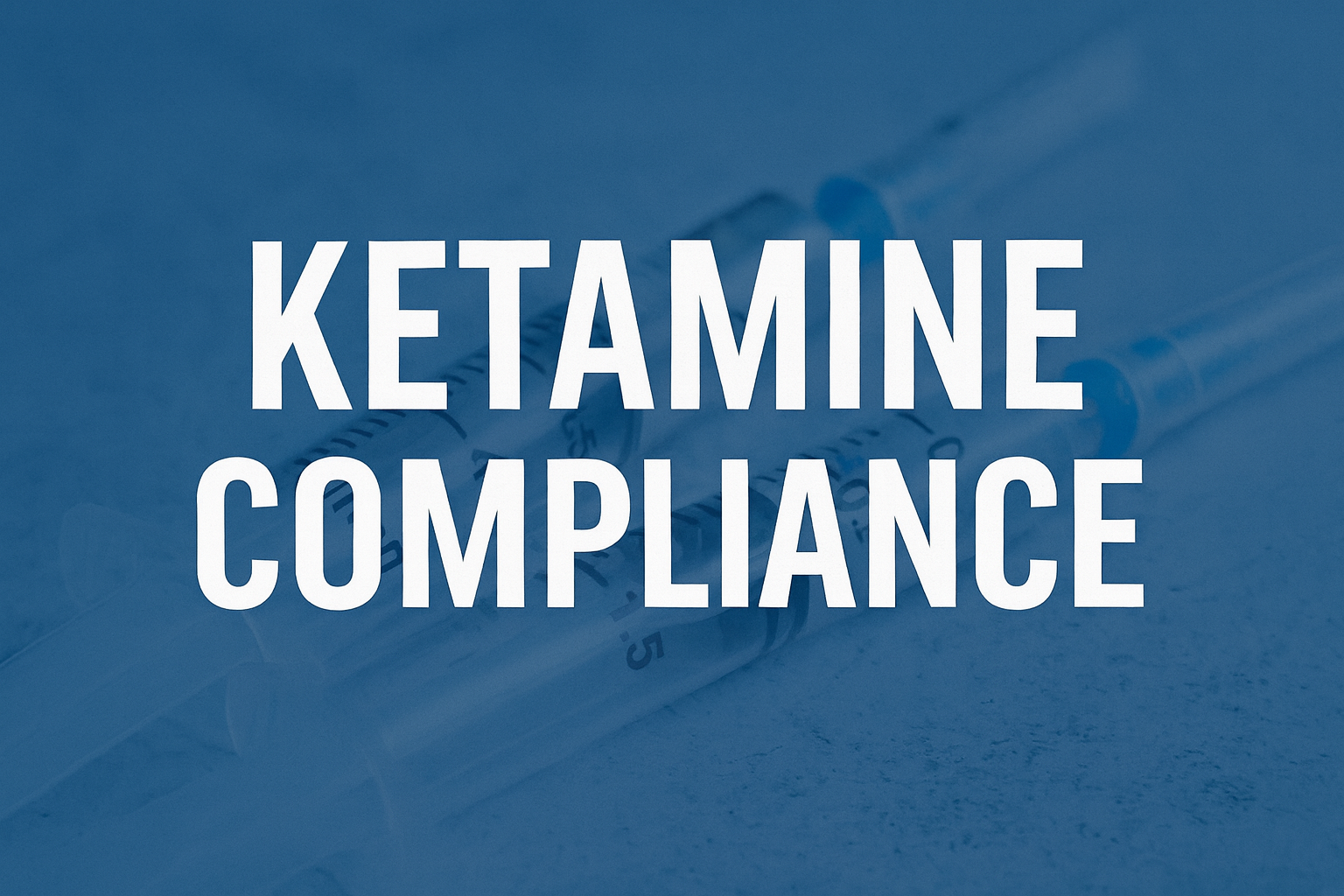Free Consultation
Fill out the form below or call us at (800) 345-4125.
Fill out the form below or call us at (800) 345-4125.
.png)
New pharmacy owners face complex PBM audit requirements that demand strict documentation, accurate claims, and ongoing compliance. Establishing strong recordkeeping systems and proactive audit readiness can help prevent costly recoupments and protect long-term network participation.
View Article >>.png)
PBM audits can leave pharmacies facing exaggerated findings, steep recoupments, and even network termination. With the right strategies and legal support, pharmacies can successfully challenge unfair results and protect their business.
View Article >>
PBM audits can be disruptive, costly, and often triggered by high prescription volumes, dispensing irregularities, or claim activity. Pharmacies can reduce risks through strong documentation, compliance, and legal support to challenge unfair findings and protect network status.
View Article >>
In a recent victory, our attorneys at Health Law Alliance achieved a full reversal of Optum’s termination of a New York pharmacy. Read about how HLA fought tirelessly to rebut Optum’s allegations and how Health Law Alliance can defend your pharmacy from an unjust termination.
View Article >>
Health Law Alliance is proud to announce a major victory in federal court, where it successfully secured the immediate lifting of a DEA suspension against a Florida community pharmacy, restoring its full authority to dispense controlled substances. This outcome ensures uninterrupted patient care and underscores the firm’s commitment to protecting healthcare providers from government overreach.
View Article >>
The DEA is increasingly targeting ketamine providers with record-keeping inspections and audits, making expert Medicare and DEA compliance defense essential to avoid steep fines and license risks.
View Article >>
The feature underscores HLA’s mission to elevate thought leadership within the healthcare space and provide trusted expertise on issues that directly impact patients, providers, and policymakers.
View Article >>
Pharmacists must resolve “red flags” under the Controlled Substances Act’s corresponding-responsibility requirements before dispensing controlled substances. Overlooking warning signs, such as cash-paid, high-dose opioid prescriptions—can now trigger False Claims Act liability and massive penalties, as demonstrated by Walgreens’ $350 million settlement in April 2025.
View Article >>
Health Law Alliance successfully secured a full reversal of a Medi-Cal payment suspension for a California pharmacy, overturning speculative allegations made by the Department of Health Care Services. This case highlights the firm’s ability to protect healthcare providers against unjust enforcement actions and the critical value of experienced legal counsel in Medicaid and insurance disputes.
View Article >>
Health Law Alliance achieved full reversal of final audit findings for a Maryland pharmacy—just one of numerous victories our attorneys has achieved for our clients. Learn more about the stunning reversal and how Health Law Alliance’s tenacious advocacy can help your pharmacy in PBM disputes.
View Article >>
Health Law Alliance secured a major win for independent pharmacies with the dismissal of Cardinal Health’s lawsuit, exposing it as a baseless attempt to intimidate smaller providers. This outcome reinforces the firm’s commitment to protecting healthcare businesses from corporate overreach.
View Article >>
Health Law Alliance attorney Anthony Mahajan, a former federal prosecutor, analyzes Sun Pharma's RICO lawsuit against independent pharmacies and opines that Sun Pharma's attempt to recover refunds it paid on returned goods is prohibited by the federal Anti-Kickback Statute and state commercial bribery laws.
View Article >>
Express Scripts is using aggressive audits and investigations to recoup the dollar value of test claims that were never paid. Don't let ESI intimidate you—contact us today for effective audit defense.
View Article >>.png)
Telemedicine business models may prompt regulatory scrutiny, including board investigations. In this case, HLA's experienced defense attorneys successfully resolved a three-year, multi-state investigation with no licensing or other implications.
View Article >>
After the Department of Justice threatened to indict our client for involvement in an alleged $6M healthcare fraud, we stood firm and our tenacious advocacy ultimately convinced the Strike Force to decline prosecution, representing a complete win for HLA's client.
View Article >>.png)
After the Department of Justice threatened to indict our client for involvement in an alleged $6M healthcare fraud, we stood firm and our tenacious advocacy ultimately convinced the Strike Force to decline prosecution, representing a complete win for HLA's client.
View Article >>
Health Law Alliance successfully reversed Optum’s termination of a Texas pharmacy from its network, protecting the pharmacy from severe financial and reputational damage. Our healthcare attorneys used strategic legal expertise and negotiations to overturn the decision, ensuring the pharmacy could continue serving patients. This victory highlights our dedication to strong advocacy and proven results.
View Article >>
This article explains arbitration clauses in Pharmacy Benefit Manager (PBM) network agreements, outlining when these clauses can be enforced and how they affect dispute resolution for pharmacies.
View Article >>
Health Law Alliance is pleased to announce that Optum recently agreed to reverse its network termination of a Texas pharmacy client despite significant claim discrepancies based on inventory shortages, patient denials, and other alleged violations of the terms and conditions of the Provider Manual and network enrollment agreements.
View Article >>
Health Law Alliance's lawsuit against Optum has resulted in the immediate release of hundreds of thousands of dollars in reimbursement that Optum unlawfully refused to release to our client prior to being sued.
View Article >>
Health Law Alliance announces the filing of an emergency lawsuit in federal court for the Northern District of Texas, Dallas Division, to stop Optum's termination of an independent pharmacy that dispensed medications on telemedicine prescriptions and force Optum to comply with federal and state "prompt payment" laws that prohibit withholding of reimbursement.
View Article >>
Health Law Alliance has successfully challenged Optum Rx's termination decisions for numerous pharmacies, ensuring they can continue to operate and serve their communities. These victories highlight the firm's expertise in healthcare law and its dedication to protecting pharmacy clients from unjust PBM actions.
View Article >>
The semaglutide industry is relatively new, and significant regulatory enforcement typically lags by at least two years. Accordingly, all participants involved in the semaglutide supply chain should implement well-designed compliance programs now to reduce the risk and severity of future regulatory action.
View Article >>
Intense semaglutide demand has now drawn the attention of regulators beyond the Food & Drug Administration (FDA) and state boards. Last month, a woman was charged by federal prosecutors with violations of criminal law related to misbranded and adulterated weight loss drugs. This prosecution marks the first of many to come.
View Article >>
Express Scripts is targeting prior authorization Fraud, Waste & Abuse involving the use of CoverMyMeds provider accounts by pharmacies. Pharmacies and physicians beware.
View Article >>
DEA registration applications are receiving increased scrutiny as DEA turns its sights on providers and pharmacies to curtail controlled substance misuse and abuse. Applicants can and should take steps to ensure the registration process moves as quickly and smoothly as possible.
View Article >>
On the heels of federal criminal investigations into OTC card usage, payors are now auditing OTC processes and imposing severe sanctions, including network termination, for non-compliance. Pharmacies should be wary of increased enforcement in this area and take steps to proactively reduce audit risk.
View Article >>
Insurers have bet big on Medicare Advantage, but the government is slowly cutting back. Faced with rising medical loss ratios and CMS reimbursement cuts, payors and their PBMs are planning to make up those losses by increasing pharmacy claims audits and unilateral recoupments.
View Article >>
Texas pharmacies are facing increasing scrutiny by the Board of Pharmacy, which is working closely with the DEA and other federal agencies, to investigate regulatory violations and Medicaid claims.
View Article >>
PBM audits must be handled correctly or severe consequences may result. In this case, HLA was able to persuade prosecutors not to file criminal charges against the pharmacy's owner, but a subsequent civil resolution still involved harsh penalties. It could have been far worse.
View Article >>
Following a PBM audit that uncovered a $6.5 million billing discrepancy, federal prosecutors opened an investigation. After HLA was retained, the U.S. Attorney's Office for the Eastern District of Pennsylvania agreed to a $2.5 million civil settlement in which the Owner denied all wrongdoing.
View Article >>
Health Law Alliance has successfully challenged OptumRx's termination decisions for numerous pharmacies, ensuring they can continue to operate and serve their communities. These victories highlight the firm's expertise in healthcare law and its dedication to protecting pharmacy clients from unjust PBM actions.
View Article >>
HLA's Nancy Coffey, a former government official and healthcare expert, has been appointed to serve a three-year term as an independent pharmacy monitor for the Commonwealth of Massachusetts.
View Article >>.png)
PBM audits may result in collateral consequences, including licensing and disciplinary proceedings. In this case, HLA's experienced defense attorneys successfully convinced the State Board to decline further investigation, effectively resolving the matter at an early stage.
View Article >>
Providers need to know their rights when it comes to investigations and audits by CMS UPIC contractors, such as SafeGuard and Qlarant. These investigators are private citizens, with no more authority or power of law than anyone else. Yet, they often employ traditional law enforcement techniques. Don't be fooled.
View Article >>
The federal government continues to bring enforcement actions relating to false prior authorizations given the high-priced medications typically involved. In this case involving Walgreens, we take a deeper dive into potential theories of liability and the use of civil investigative demands and subpoenas in healthcare fraud cases.
View Article >>
Department of Justice prosecutors continue to file numerous cases against pharmacies and their owners for inventory shortfalls and other discrepancies. These cases arise out of referrals by government contractors following a pharmacy audit, and often involve severe potential consequences.
View Article >>
Based on a recent announcement, the federal government (HHS-OIG) will be prioritizing audits of pharmacy claims in 2024. This further signals that pharmacy audits from all angles are on the rise.
View Article >>
Although DEA has long targeted wholesalers as the "choke-point" for stemming diversion, the Agency has now shifted its focus to downstream physician and pharmacy registrants. Providers who thought they understood DEA risk need to revisit their planning because the enforcement paradigm has changed dramatically.
View Article >>
PBM audits can be resolved successfully, but more frequent and aggressive audits will require careful planning. Providers should avoid reactive behavior. Strategic planning for audit resolution should be made from audit inception to proactively manage audit risk effectively.
View Article >>
In this article we profile the The Health Law Alliance, a specialized healthcare boutique with a team of experts in government investigations, PBM audits, payor disputes, licensing board matters, and regulatory advice. Industry peers note the extensive legal experience of the firm's founding partner and the diverse expertise of the team, positioning the firm to provide strategic and pragmatic solutions for clients facing challenges in the healthcare sector.
View Article >>
Federal prosecutors are expanding a healthcare fraud investigation, charging New York pharmacy owners and employees for violations related to OTC card practices. Health Law Alliance, led by Anthony Mahajan, emphasizes the severity of charges, urging providers to act promptly to limit exposure.
View Article >>
Semaglutide compounding pharmacies face regulatory threats as state boards interpret statutes restrictively; Health Law Alliance, led by Anthony Mahajan, emphasizes broader permissions, countering misinterpretations.
View Article >>
Health Law Alliance, with Anthony Mahajan at the helm, recovers $20M+ unlawfully seized by financial institutions, highlighting potential illegality in account restraints and urging clients to seek immediate counsel for asset freezes.
View Article >>
Health Law Alliance's Anthony Mahajan discusses the potential outcomes and strategies related to Pharmacy Benefit Manager (PBM) audits, emphasizing the importance of understanding the intersection between government enforcement actions and PBM audits. With unmatched experience in PBM audit defense, Mahajan highlights the firm's achievements in resolving cases involving inventory discrepancies and government investigations, offering comprehensive solutions to protect clients against potential liabilities.
View Article >>
Health Law Alliance, under Anthony Mahajan's guidance, reports the successful acceptance of a self-disclosure for Delmar Pharmacy by OIG following a PBM audit identifying Humira dispensing discrepancies. The pharmacy's collaborative decision to disclose limits liability to $218,129.26, emphasizing Health Law Alliance's expertise in PBM audit defense and OIG self-disclosures.
View Article >>
Health Law Alliance, under Anthony Mahajan's leadership, celebrates favorable outcomes in federal and state cases involving inventory shortfalls, showcasing their expertise in PBM audit defense. Successful dismissals of criminal charges and reduced civil settlements highlight Health Law Alliance's strategic approach in resolving cases stemming from PBM audits.
View Article >>
Health Law Alliance addresses the complexities of defending against inventory shortfalls in the context of PBM audits, emphasizing the common sources of discrepancies and potential legal implications. The article underscores the importance of a well-organized defense strategy to limit liability and navigate potential consequences for providers facing network suspension, administrative proceedings, civil lawsuits, or even criminal charges arising from inventory management errors.
View Article >>
Federal prosecutors are now pursuing felony charges under Section 1035 for false statements in pharmacy audits, extending the risk of criminal prosecution for healthcare providers. Recent cases highlight the importance of legal counsel, such as HLA's experienced attorneys, to safeguard against potential legal consequences.
View Article >>